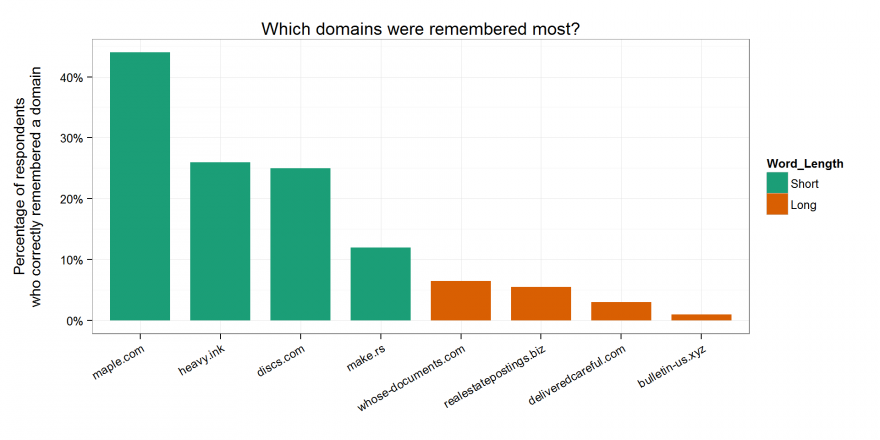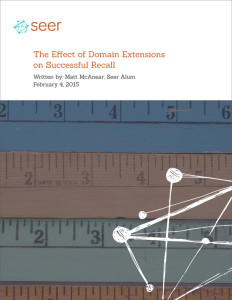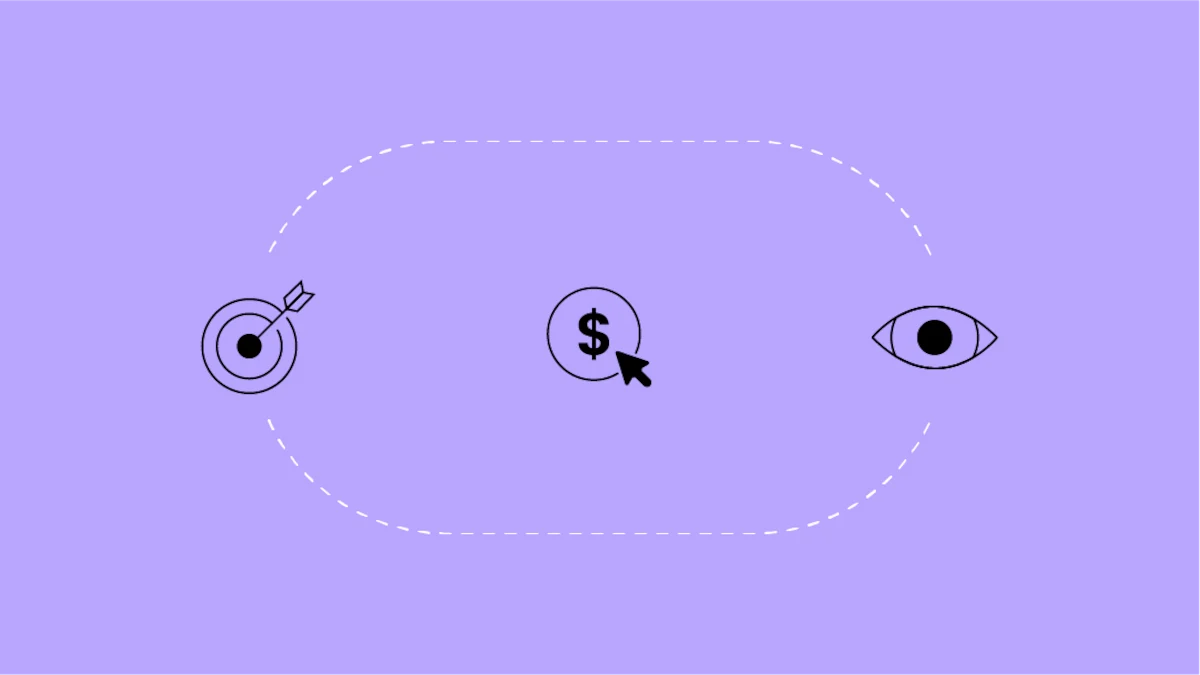UPDATE: If you’re interested in the finer details of this study, download our free white paper!
Pop quiz: You’re buying a website domain. You sell disco balls. Disco-ball-fever.com is $200. Disco.ball is $20. Which one do you buy?
Answer: If you are trying to maximize how many people can recall your website domain five seconds after seeing it, then buy disco.ball.
You’ve probably seen the internet awash lately in bizarre domain extensions. Speculators, investors, and any average Joe wanting a piece of the internet pie can now purchase such exotic domain extensions as “.flowers,” “.xyz,” and “.io”. There are actually quite a few to choose from.

The motivation for buying one of these is both obvious and intuitive. Let’s say you own a specialty bouquet shop. You may think: “I want bouquets.com, but it’s taken! I’ll buy bouquets.flowers instead. It’s still fairly short, has a nice ring to it, and it’s got a unique extension so that when anyone thinks of bouquets or flowers, they think of bouquets.flowers!”
But will customers remember your website any better just because the URL ends in .flowers? Customers may be more likely to remember a longer .com domain, like “specialty-bouquets.com,” just because they don’t have to remember an unfamiliar extension.
Without some hard data, both of these hypotheses sound plausible, and so SEER set out to do some experimentation. We started out asking a very simple question: “What’s easier to remember: a longer domain name with a .com extension, or a shorter domain name with an exotic domain extension?”
The Experiment
- We created a test where the subject sees a list of eight words for five seconds - after the five seconds, they are able to write down as many as they can remember. If they correctly retype a domain, then that’s counted as a success. This means that our variable of interest, whether or not a test subject correctly answered a question, had two outcomes: yes or no.
- We made four different lists of randomly ordered words, in an effort to control for the position of a word.
- We gathered 200 successful test completions through Verifyapp.com over the course of three days.
Once we had the data, we analyzed it using some fairly common statistical tests for binary (yes/no) data.
The Results
Here’s the distribution of how the questions were answered.

The first conclusion you might draw looking at this graph is that .com domains are easier to remember than the exotic extensions, since maple.com was remembered by 45% of people, far more than any other domain. But that’s not quite right! In fact…
- We ran some tests on the data and found that respondents were on average 9.9 times more likely to correctly recall short domains versus long domains. This finding was highly significant.
- More suprisingly, we found that .com extensions were not significantly easier to remember after controlling for:
- the length of the domain
- whether or not the word was in the first position of a list variation
- the individual respondent
So does size matter?
Absolutely!
If you are planning on buying a domain name, given the choice between a short domain ending in .com and a short domain ending in an exotic extension, we can’t tell you which one to pick. There wasn’t enough evidence to say that .coms and exotic extensions differ in how well they are remembered. But given the choice between a long .com and a short domain with an exotic extension, you should pick the short one!
If you follow that simple rule, we at SEER are confident (at the 95% level, anyway) that your domain will be stuck in the heads of any potential customers who see it!
NOTE: Stay tuned for a white paper further detailing the intricacies of this experiment.



